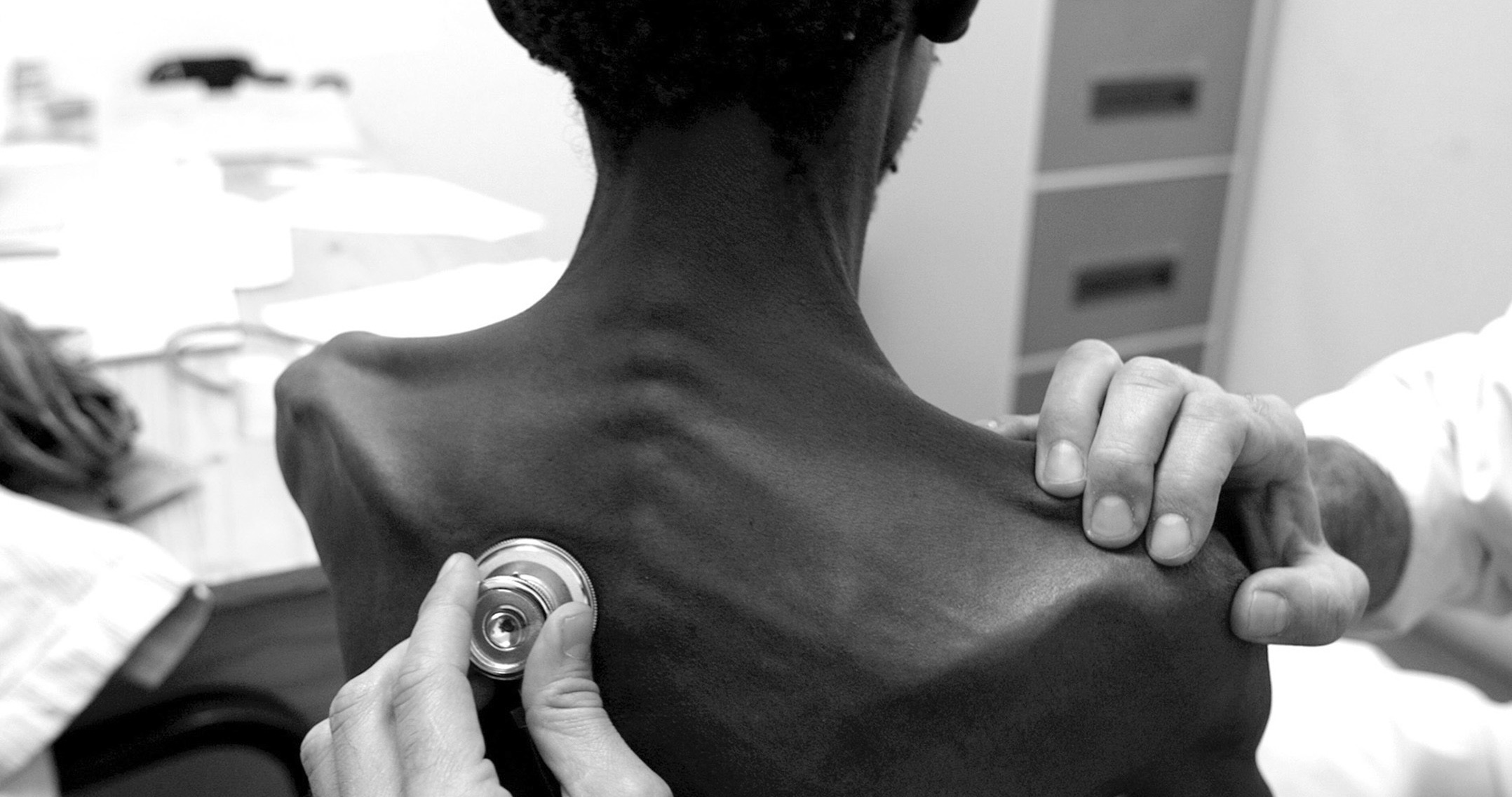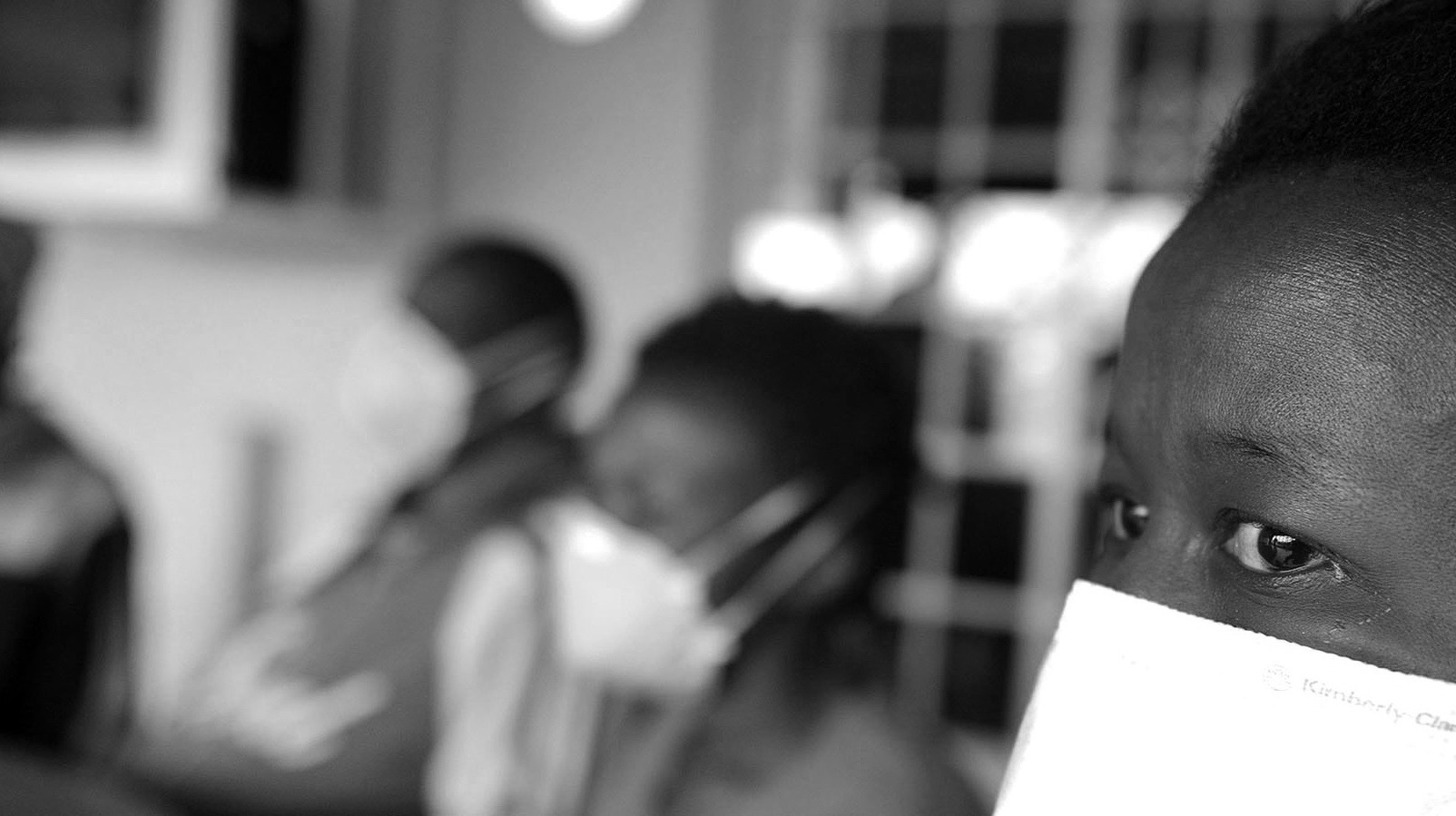SPOTLIGHT
Free State pushing to get TB patients back into care after hundreds drop out of treatment
As in the rest of the country, the Covid-19 pandemic dealt a severe blow to the tuberculosis response in the Free State. Spotlight gathered the available data and asked the province’s health department about its plans to get the TB response back on track.
Since the first Covid-19 case was recorded in the Free State on 17 March 2020, the number of people visiting health facilities in the province dropped significantly. This resulted in fewer people screening and testing for conditions such as tuberculosis (TB) and some people not completing their treatment.
Speaking at a TB workshop held by the provincial health department in November last year, Matshediso Morigihlane, director of TB, Drug-resistant TB and Communicable Diseases, said that from 2017 to 2020 they recorded 3.8 million clinic visits in the province. Of those visiting clinics, 6,000 were placed on TB treatment over the four-year period — of which 500 disengaged from the healthcare system and 400 died.
Numbers dropped
The Free State Department of Health’s statistics show that the number of people who were placed on treatment in the first quarter of 2020 (January to March 2020) dropped from 2,611 to 1,651 in the second quarter (April-June 2020).
The biggest drop was in the Mangaung metro, where numbers plunged from 913 to 592. In other districts, the number of people who started TB treatment dropped from 648 to 401 in the Lejweleputswa district; from 481 to 308 in Thabo Mofutsanyana; from 379 to 241 in Fezile Dabi, and in Xhariep, the number of people identified to have TB and placed on treatment fell from 190 to 109.
Spotlight requested figures for 2021, but the Free State Department of Health had not provided any new numbers by the time of publication. The Free State does not have a publicly accessible TB dashboard like that in the Western Cape.
Apart from fewer people being diagnosed and starting TB treatment, Morigihlane pointed out that of those who did start treatment, fewer completed the treatment course (TB treatment takes at least six months).
“The numbers of the first cohort (January to June) of patients who have completed their treatment in 2020 in the Free State dropped from 1,976 to 1,179,” said Morigihlane. Again, the biggest drop of those who successfully completed treatment was recorded in Mangaung (a drop from 691 to 451).

Things went from bad to worse during Covid-19 as TB services came to a halt. (Photo by Gallo Images/Sunday Times/James Oatway)
Morigihlane said the death rate among people diagnosed with TB during the pandemic increased to 12.5% in the second quarter of 2020, compared to 9.6% in the first quarter.
In the first quarter, most of these deaths were recorded in the Thabo Mofutsanyana district, with a 12.1% death rate. She said in the second quarter, TB deaths increased in all districts, with Fezile Dabi recording the most deaths at 18.7%, up from 9.9% in the first quarter.
Morigihlane also presented statistics on people living with TB who were lost to follow-up (stopped taking treatment or visiting health facilities). She says in the first quarter of 2020, there were 280 people who were lost to follow-up and 244 in the second quarter.
The recovery plan
Morigihlane says that every year thousands of people living with TB are missing out on quality care, and that a majority of those who are dying of TB are not on treatment.
She said the provincial health department has been running a campaign to invite all those who stopped taking treatment, to come back and complete the course.
“If a person has stopped taking their treatment for two months, we have to start them afresh as a retreatment. Our plan includes sending our community health workers door to door so that they can bring back the people that we have lost during Covid-19. We have a list of all the people who did not show up for their treatment,” she said.
“This is one programme where we want people to come to the clinic. We do not put TB patients on the Central Chronic Medicine Dispensing and Distribution Programme because they are not community-based patients.
“A TB patient is a clinic-based patient, where we continuously have to take their sputum to see if the bacteria are dying or not,” she said. “When the bacteria is not going down, it will show that the person has not been swallowing tablets, or we are treating a different type of TB, which is drug-resistant TB. This way we are able to test them for DR-TB and put them on the relevant treatment to align with the type of TB that is in their lungs.”
Morigihlane said the department now integrates screening services. “We have taken the decision that each and every patient that visits our facilities will not only be screened for Covid-19 alone, but they will also be screened for TB.”
Spotlight asked Bonny Sehularo, acting provincial spokesperson for health, whether there are other TB diagnostic methods the department is considering, such as screening with mobile chest X-rays. Sehularo did not respond by the time of publication.
Experiences from the frontline
“Daily I go into the community to look for patients who do not go back to collect their TB and HIV treatment,” says Mpho Morolong (not her real name), a community health worker at the Thusong Clinic in Mangaung.
“Sometimes the patients are too sick to go to the clinic, especially those patients who have both TB and HIV at the same time. Sometimes they do not have transport that can take them to the clinic during the time when they are too sick,” says Morolong.
“Some of the patients say that they do not want to go back to the clinic because of the long waiting periods [and] long queues. What the department also does not understand is that once patients are placed on TB medication, they need a nutritious diet. Unfortunately, many of the patients are poor and do not get better because they cannot afford to buy the right food. I do my best as a community health worker to explain to the patients the importance of going back to complete their treatment, and some listen but others do not.”
Twana Ngconco (56) from Phahameng is a patient at Mmabana clinic in Mangaung. He recently restarted TB treatment after having stopped.
“I stopped going to the clinic last year when I was feeling better. I did not see the need to go back because I felt better,” says Ngconco. “But I went back again when I started coughing in November last year.
“The nurses welcomed me and encouraged me to complete my medication. What I have learned from my experience is that it is important for me to complete my TB treatment,” says Ngconco.
TB plans falling short, activists say
Mpho Matobako, provincial manager of the Treatment Action Campaign, says they are not happy with the overall management of TB services in the province, and that sending out community health workers is not enough.
“Things went from bad to worse during Covid-19 as TB services came to a halt — the whole department was focused on Covid. We are saying, whatever you are doing for Covid, please do it for TB,” says Matobako.
“A multi-drug resistant TB unit at Kopano Old Provincial Hospital in Welkom, Lejweleputswa District, has been closed since 2019, and all patients were transferred to Moroka Hospital in Thaba Nchu, which has placed a burden on the facility. The hospital was closed down because the unit was in a bad condition, but the problem is, it has been closed since 2019,” he says.
Spotlight asked the department about a new MDR-TB unit that was meant to replace the one that was closed down in Welkom, but Sehularo could not immediately provide a response.
Free State MEC for Health, Montsheng Tsiu, said in her budget speech last year that the department had completed a 30-bed MDR-TB specialised hospital at the Mantsopa Hospital in Ladybrand.
Morigihlane said the department has a budget of R84-million for TB programmes in the province.
“The money is used to pay the personnel [providing] TB [services], to buy the sputum tests and machinery, as well as the DR-TB tests. With that said, we can say that we do have enough money. What we need is for the missing people to come, and for those who are showing signs and symptoms to go to their nearest clinics.”

Since the first Covid-19 case was recorded in the Free State on 17 March 2020, the number of people visiting health facilities in the province dropped significantly. This resulted in fewer people screening and testing for conditions like TB and some people not completing their treatment courses. (Photo by Gallo Images / Foto24 / Lulama Zenzile)
Facilities in ‘terrible condition’
Another organisation advocating for the rights of TB and HIV patients in the province is Positive Action Campaign. Its general secretary, Sello Mokhalipi, says the department’s plan does not address the realities on the ground.
“Facilities are in a terrible condition… Patients are treated badly by nurses and facilities have small waiting rooms which are bad for TB patients.
“One of the biggest problem clinics has to be the Bloemspruit Clinic in Mangaung — I get daily complaints from patients about the service they get at facilities. We would really like the department to take these matters seriously because this is the health of our people we are talking about.”
A report published in September last year by community healthcare monitoring group, Ritshidze, also flagged Bloemspruit as one of the clinics that were found not to comply with the World Health Organization’s Guidelines on Tuberculosis Infection Prevention and Control.
These guidelines, among others, state that everyone at the clinic should be screened for TB. It also states that there should be enough room and space for patients to wait without overcrowding, and that the waiting time must be less than an hour and 15 minutes. Patients who are coughing on arrival at the clinic must be separated from others.
Ritshidze found that Bloemspruit Clinic fell short since there was not enough room in the waiting area, patients were spending up to six hours in the facility, only 28% of patients were screened for TB symptoms and 17% of coughing people were put in a separate room.
We asked the health department’s Bonny Sehularo about these challenges, the implications for the province’s TB response and what plans existed to address the infrastructural shortcomings. She failed to provide an answer by the time of publication. DM/MC
Note: Someone from the TAC is quoted in this article. Spotlight is published by SECTION27 and the TAC but is editorially independent — an independence that the editors guard jealously. Spotlight is a member of the South African Press Council.
This article was produced by Spotlight — health journalism in the public interest.
"Information pertaining to Covid-19, vaccines, how to control the spread of the virus and potential treatments is ever-changing. Under the South African Disaster Management Act Regulation 11(5)(c) it is prohibited to publish information through any medium with the intention to deceive people on government measures to address COVID-19. We are therefore disabling the comment section on this article in order to protect both the commenting member and ourselves from potential liability. Should you have additional information that you think we should know, please email [email protected]"






 Become an Insider
Become an Insider